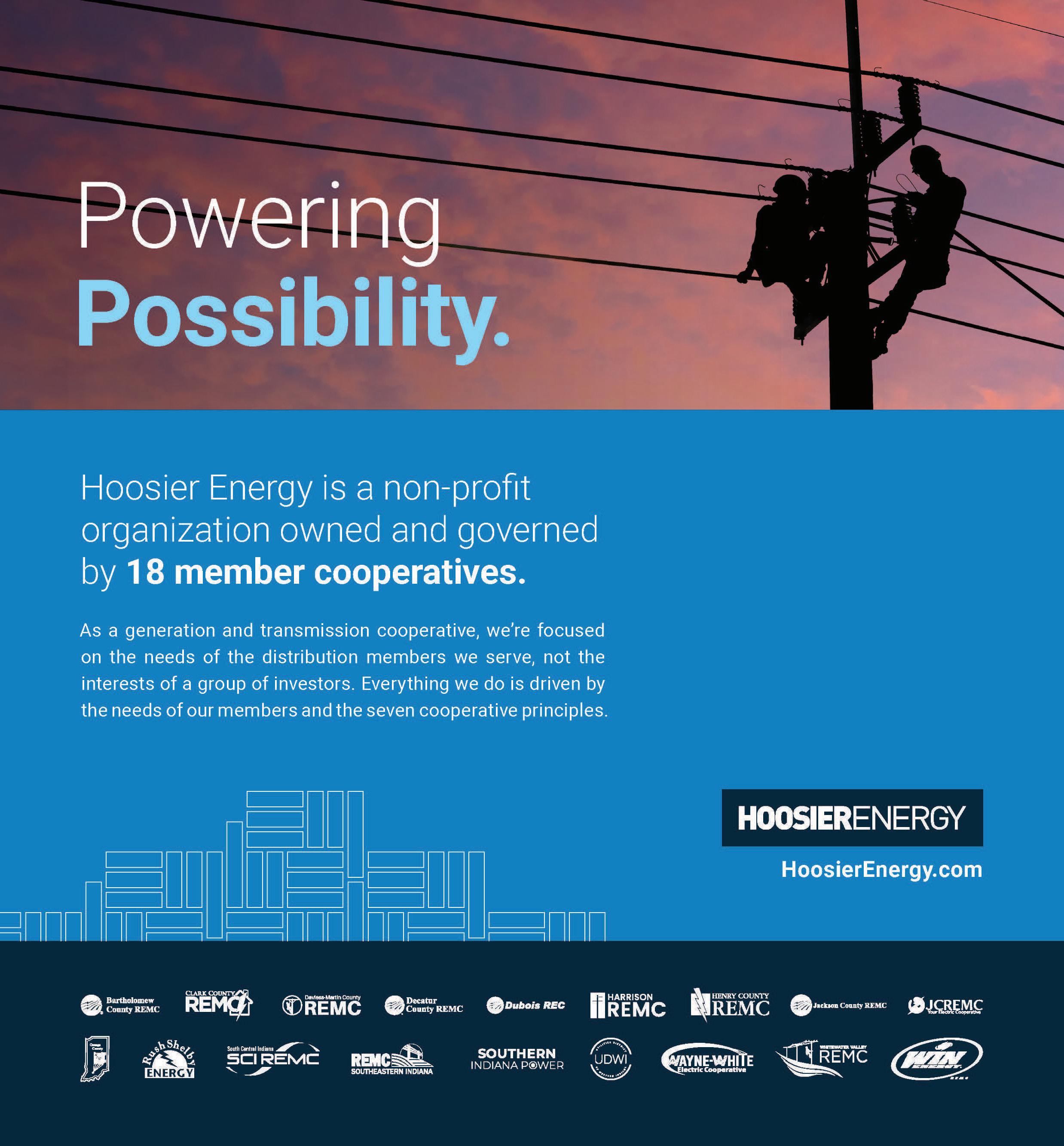

Choose WaterFurnace
GEOTHERMAL HEATING, COOLING & HOT WATER




Energy savings up to 70% Even compared to high efficiency gas & air conditioning.

Environmentally friendly Recognized by the EPA and the Department of Energy.
Longer lifespan
25 year average for units and up to 100 years for loops.
Added resale value
Energy efficiency is a selling advantage for your home.

Delphi Blue Fox Htg & Clg
(765) 822-2200
bluefoxhvac.com
Farmersburg
Heady Htg & Clg
(812) 696-2396
Flora Camflo Htg & Clg
(574) 967-4200
camfloheatingandcooling.com
Fort Wayne Masters Htg & Clg, Inc.
(866) 824-4328
mastersingeothermal.com
Greensburg Wallpe Htg & Clg
(812) 663-7252
wallpegeothermal.com
Indianapolis Masters Htg & Clg by Van Valer, Inc. (317) 881-9074
mastersingeothermal.com
Jasper Hulsman Refrigeration, Inc.
(812) 634-1492
hulsmanrefrigeration.com
Laotto T&T Plbg, Htg, A/C & Geothermal (260) 200-4003
tt-ph.com
Lebanon Blue Fox Htg & Clg 765-859-0880 bluefoxhvac.com
North Vernon Air One Htg & Clg, Inc. (888) 346-1790 aironehvac.com
Ossian Collier’s Comfort Services (260) 622-6622 collierscomfort.com
Schererville AAA Services, Inc. (219) 472-8645 aaaserviceshvac.com
Waterloo Gibson’s Htg & Plbg, Inc. (888) 754-1668
gibsonsgeothermal.com
West Lafayette Blue Fox Htg & Clg (765) 252-0051
bluefoxhvac.com
Westfield Precision Comfort Systems, Inc. (800) 377-5667
precisioncomfort.com
Warsaw Colliers Htg & Air Conditioning (574) 269-3393
trustcolliers.com
from the editor
Meet the team: Mandy Barth
The final member of the Indiana Connection team to highlight is Mandy Barth, the vice president of communication at Indiana Electric Cooperatives, the publisher of the magazine. Her essential leadership provides the glue that binds the whole team together. Here’s more about her:

As vice president of communication, it is my pleasure to work alongside the communication team as we work on initiatives that benefit both IEC and our member cooperatives, which include media relations, creative services, this magazine, philanthropy and more. I also love the part of my job that enables me to work with the great people at our 38 member cooperatives as we support their communication needs.
Three facts about Mandy:
• My hometown is the East Central Illinois community of Fisher, where I was a member of a Fisher Bunnie graduating class of just 36 students.
• My husband, Matt, and I have two daughters who keep us busy! Macie, a high school junior, lives and breathes horses. Mara, a fifth grader, is a soccer player.
• Beach vacations and live music are my favorite ways to spend some downtime. The U.S. Virgin Island of St. John is my happy place and I’ve lost count of how many times I’ve seen Kenny Chesney in concert.
Mandy is a compassionate and insightful leader with a wealth of tremendous ideas — and she’s also delightful to be around.
Stephanie Groves Editor sgroves@indianaec.orgWin a $25 gift card to Amazon.com, Mandy’s favorite e-commerce website!
On the menu: December: Recipes using candy, deadline Oct. 1. If we publish your recipe on our food pages, we’ll send you a $10 gift card.
Giveaway: Win a $25 Amazon.com gift card! Visit indianaconnection.org/talkto-us/contests or send your contact information to the address below. The deadline to enter is Sept. 30.
Ideas wanted: Small Business Saturday is the theme of our November cover story, and we’d love to hear about your favorite small Indiana business — email us and tell us about the business at info@indianaconnection.org by Sept. 25.
Three ways to contact us: To send us recipes, photos, event listings, letters and entries for gift drawings, please use the forms on our website indianaconnection.org; email info@indianaconnection.org; or send to Indiana Connection, 8888 Keystone Crossing, Suite 1600, Indianapolis, IN 46240-4606.
VOLUME 73 • NUMBER 3
ISSN 0745-4651 • USPS 262-340
Published monthly by Indiana Electric Cooperatives
Indiana Connection is for and about members of Indiana’s locally-owned, not-for-profit electric cooperatives. It helps consumers use electricity safely and efficiently; understand energy issues; connect with their co-op; and celebrate life in Indiana. Over 311,000 residents and businesses receive the magazine as part of their electric co-op membership. Member’s cost per issue is approximately 32 cents, plus postage.
CONTACT US:
8888 Keystone Crossing, Suite 1600 Indianapolis, IN 46240-4606 317-487-2220
info@indianaconnection.org
IndianaConnection.org
INDIANA ELECTRIC COOPERATIVES OFFICERS:
Randy Kleaving President
Steve McMichael Vice President
Dr. Richard Leeper Secretary/Treasurer
John Cassady CEO
EDITORIAL STAFF:
Stephanie Groves Editor
Richard George Biever Senior Editor
Holly Huffman Communication Support Specialist
Lauren Carman Communication Manager
Kiley Lipps Graphic Designer
Ashley Curry Production and Design Coordinator
Amber Knight Creative Manager
Mandy Barth Vice President of Communication
ADVERTISING:
American MainStreet Publications
Cheryl Solomon, local ad representative; 512-441-5200; amp.coop
Crosshair Media 502-216-8537; crosshairmedia.net
Paid advertisements are not endorsements by any electric cooperative or this publication.
UNSOLICITED MATERIAL:
Indiana Connection does not use unsolicited freelance manuscripts or photographs and assumes no responsibility for the safekeeping or return of unsolicited material.
SUBSCRIPTIONS:
$12 for individuals not subscribing through participating REMCs/RECs.
CHANGE OF ADDRESS:
If you receive Indiana Connection through your electric co-op membership, report address changes to your local co-op.
POSTAGE:
Periodicals postage paid at Indianapolis, Indiana, and at additional mailing offices.
POSTMASTER:
Send change of address to: Indiana Connection, 8888 Keystone Crossing, Suite 1600, Indianapolis, IN 46240-4606. Include key number.
No portion of Indiana Connection may be reproduced without permission of the editor.




29 10

SEPTEMBER 2023 CHAIN LINKS in the Repurposed railroad lines to form a transcontinental route of multiuse trails PAGES 20-23 20
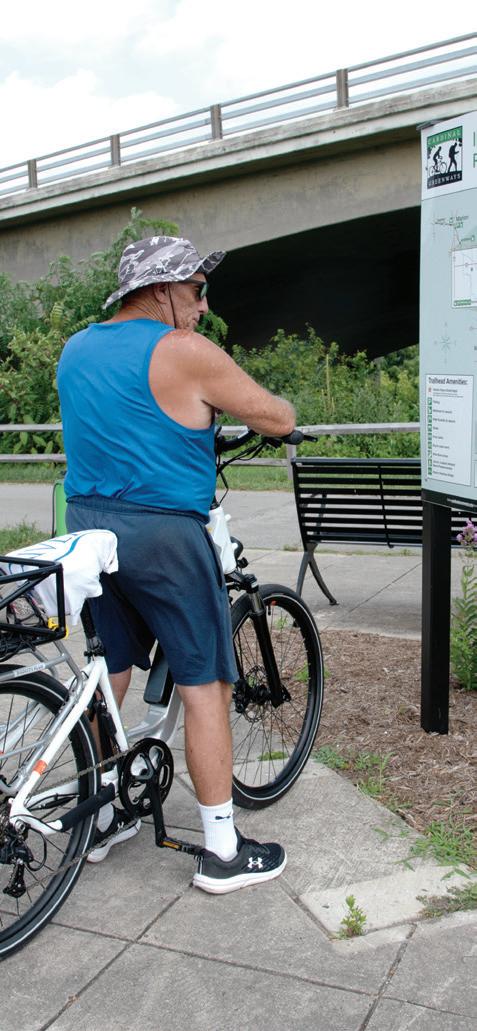
29 PETS
Insurance gives pet parents peace of mind (NOT IN ALL EDITIONS)

30 DIY HOME

On the cover
Through a shaded tunnel of green, cyclists make their way along the Nickel Plate Trail that runs between Kokomo and Rochester. The abandoned railroad corridor is a key north-south link through Indiana on the Great American Rail-Trail, an ambitious project connecting Washington, D.C., to Washington state by trails.
PHOTO BY RICHARD G. BIEVER

www.harrisonremc.com
CONTACT US
812-738-4115
812-951-2323
Fax: 812-738-2378
Click on “Contact Us” at www.harrisonremc.com.
OFFICE HOURS
7:30 a.m.–4:30 p.m., Monday–Friday
DRIVE-THRU WINDOW HOURS
7:30 a.m.–4:30 p.m., Monday–Friday
LOBBY HOURS
8 a.m.–4 p.m., Monday–Friday
STREET ADDRESS
1165 Old Forest Road, Corydon, IN 47112
MAILING ADDRESS
P.O. Box 517, Corydon, IN 47112
SERVICE INTERRUPTIONS
To report a power outage, please call 812-738-4115 or 812-951-2323.
BOARD OF DIRECTORS
David Poe (Floyds Knobs), President
Brian Koetter (Borden), Vice President

Craig Engleman (Corydon), Secretary/Treasurer
Pat Book (Palmyra)
David Walther (Lanesville)
Darin Duncan (Elizabeth)
C. Todd Uhl (Corydon)
Danny Wiseman (Mauckport)
Roy Zimmerman (Laconia)
Harrison REMC offers ...
LED security light rental; a community solar program; heating and cooling rebate program; surge protection information; home energy seminars; payment via phone, online, e-check, automatic payment plan and budget billing; REMC gift certificates; prepaid billing; and a mobile app with notification options!
MISSION STATEMENT
The mission of Harrison REMC is to provide a well-informed membership with superior, competitively priced electric and related member service(s), accomplished by highly trained, committed employees. It is further the mission to improve the quality of life of the member-owners by promoting community, economic development and energy efficiency activities.
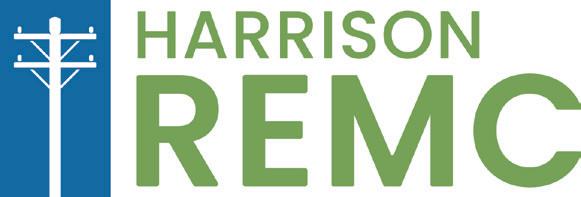
STAY INFORMED, STAY SECURE!
In today’s increasingly digital world, scammers have adapted their tactics to target consumers through their electronic devices, such as by email, phone call or text. Harrison REMC wants to ensure your safety and financial security by equipping you with the knowledge to identify and avoid electric bill scams. Let’s explore some essential tips to safeguard against fraudulent activities.
Know the signs of prevalent scams:
THE OVERDUE PAYMENT THREAT
Fraudsters may contact you through phone calls, emails, texts or even in person, claiming that your electric bill is overdue and threatening to disconnect your service if immediate payment is not made. Remember, Harrison REMC will never demand immediate payment after just one notice. If you receive such a call, simply hang up. For concerns about your bill, contact us directly at 812-738-4115.
FAKE REFUND SCAMS
Some scammers may falsely claim that you have been overcharged on your bill and offer a refund. They may ask for personal or banking information to initiate the refund process. Never provide such information to unknown individuals.
If you receive any suspicious emails or texts regarding refunds, do not click on any links. Instead, delete the message and, if possible, block the sender.
To protect yourself from scams, follow these important steps:
BEWARE OF UNKNOWN NUMBERS
Be cautious when receiving calls or texts from unfamiliar numbers. If someone claiming to be a utility worker requests personal or banking information, it is likely a scam. Harrison REMC will never ask for such information over the phone or through text messages.
VERIFY IDENTITY
Always exercise caution when allowing someone into your home. Unless you have a scheduled appointment or have reported a problem, avoid letting strangers in.
Harrison REMC employees wear logoed uniforms and carry ID badges. If work is being performed on your property or inside your home, our employees will always identify themselves as professionals.
Your safety and security are of utmost importance to us at Harrison REMC. Stay vigilant and stay informed, and together, we can protect ourselves and our community against electric bill scams. If you have any questions or concerns, please don’t hesitate to contact us at 812-738-4115.
Shift your use
Check off the worst peak offenders in
� Electric furnaces
� 120-volt space heaters
� Electric water heaters, clothes dryers and ovens
� Dishwashers
� Air conditioners/heat pumps
� Leaky ductwork in attics
� Dehumidifiers
� Hot water circulating pumps
� Water pumps for non-drinking purposes
� Block heaters for auto or pickup
� Open curtains, which require more air conditioning or heating
� Electric vehicles
Harrison REMC has been offering a timeof-use (TOU) rate option since 1988. The TOU rate is more reflective of wholesale energy costs, which are determined by two factors: an energy charge and a demand charge.

The REMC’s wholesale costs are low when the demand for energy decreases (off-peak) and the costs are higher when demand increases (on-peak). The TOU rate reflects the REMC’s wholesale costs associated with these on-peak and off-peak periods. Shifting energy use to periods of low demand will reduce our power costs and allow us to pass the savings on to you.
Starting last year, the TOU rate has been revised to include an additional “Super Off-Peak” rate. This new rate will help incentivize members to use electricity at an even lower cost time. This “Super Off-Peak” period is from 11 p.m. to 5 a.m. every day of the year on the TOU rate. This rate is great for members who have electric vehicles or are considering an electric vehicle and could program their EV to charge on the very low rate, as well as set other household appliances to run during that time to save money.
Members who sign up for this rate and expect to save money will need to shift their electric use to off-peak hours by making lifestyle changes, such as adjusting the thermostat a few degrees and drying clothes or running the dishwasher during off-peak hours. WHEN you use other household appliances will also become a top priority. To the left is a list of peak demand offenders from worst to least and a breakdown of off-peak and on-peak hours.
To sign up, or if you have questions, please call the office at 812-738-4115 or 812-951-2323.
What are the other offenders in your home?
Moderate offenders
� Hair dryers
� Toasters
� Curling irons
� Leaky ductwork in crawl space or basement
� Freezers
� Electric cooktops
� Stand alone humidifiers
� Incandescent lighting turned on for the whole peak demand period
Minimal offenders ON-PEAK
� TVs, DVD players, VCRs and radios
� Computers and printers
� Blenders/mixers, microwave ovens
� Phone/game/laptop chargers
� Ceiling/floor/table fans running to provide relief in lieu of air conditioning
� Incandescent lighting used as needed (intermittent during peak demand period)
� Continuous use of ventilation fans during peak period
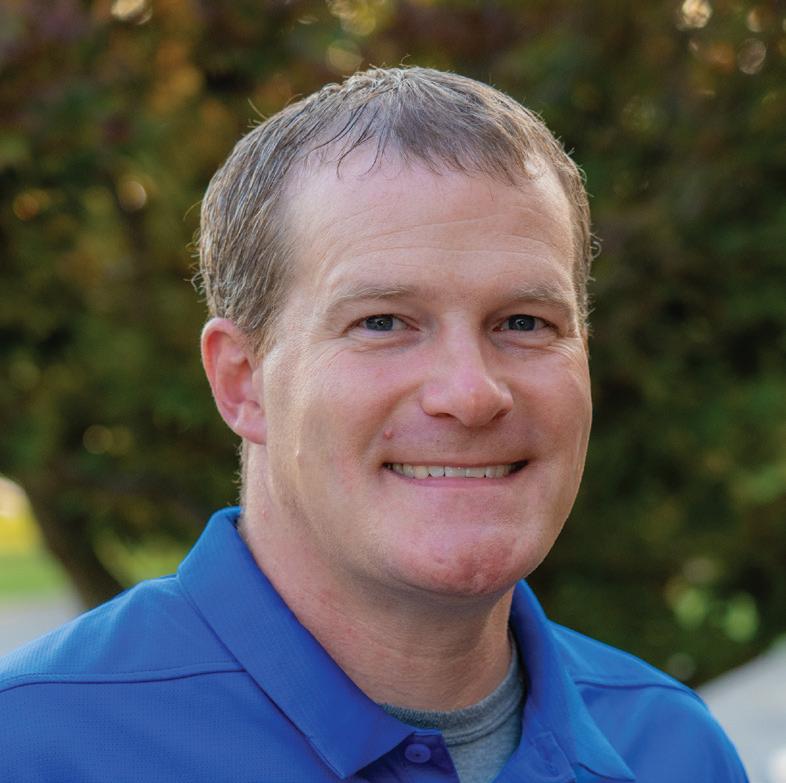
DOES THE REMC OWE YOU MONEY?

Harrison REMC has posted a list of individuals who were issued a capital credit refund check in June 2021 and 2022 for the capital credit years of 19841987 but have not claimed their checks. Each check was mailed to the last known address on record at the REMC.
A notice of where to obtain the list of unclaimed checks has been published in local newspapers to inform those who may have been issued a check. This list is available online at harrisonremc.com Any checks that continue to remain unclaimed after 60 days are subject to reallocation in accordance with the bylaws of Harrison REMC. This unclaimed page will remain on the REMC website and will be updated continuously with capital credit funds that remain unclaimed.
If you are a person who is listed, know the address of a person listed or are the surviving heir of anyone listed, please fill out the form on the site, or contact the REMC at 812-738-4115 or 812-951-2323.

CRUISE CLOSE TO HOME ® along the Columbia & Snake Rivers






Follow Lewis and Clark’s epic 19th-century expedition along the Columbia and Snake Rivers aboard the newest riverboats in the region. Enjoy unique shore excursions, scenic landscapes, and talented onboard experts who bring history to life.

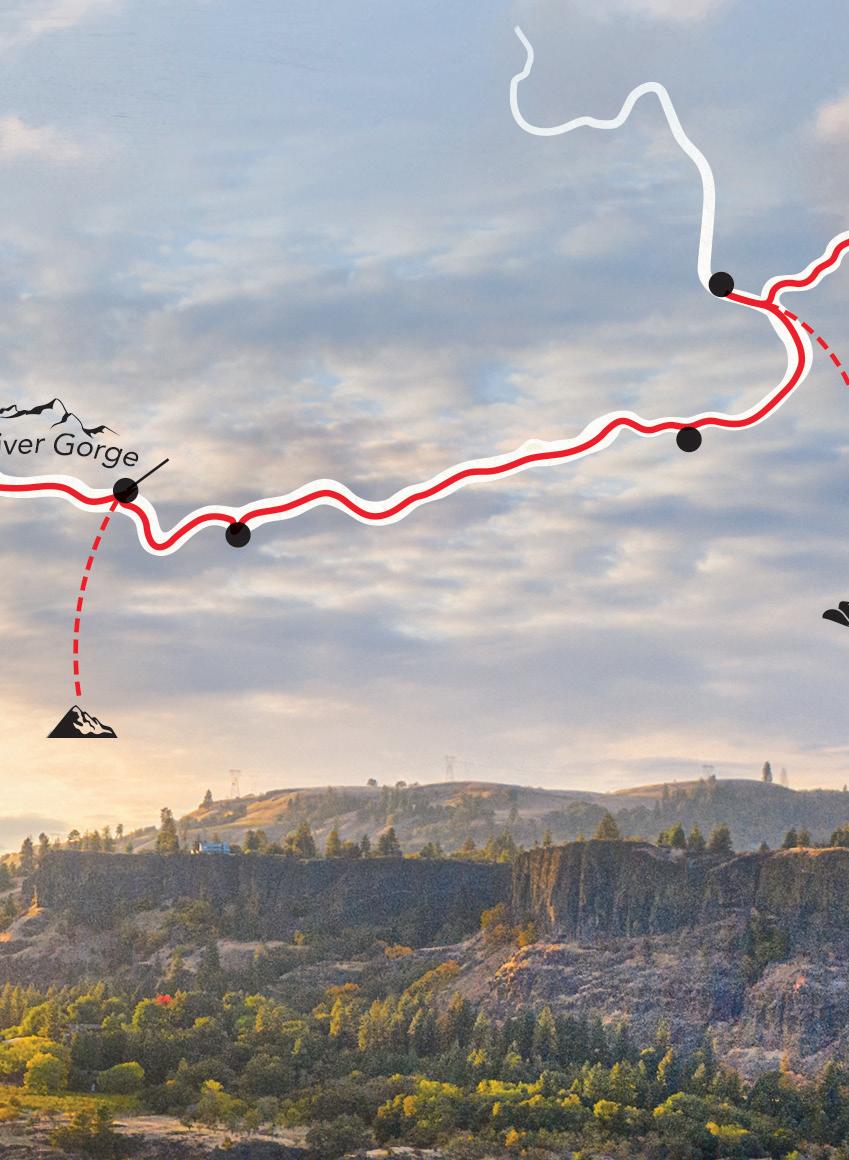

Small Ship Cruising Done Perfectly ®


HOME DISCHARGING
Your home’s backup power may eventually be an electric vehicle
Many homeowners may one day have a home backup power source parked in their garage — that is the same vehicle driving them around town.
As automakers release more EV models, the technology contained in them is growing more sophisticated. Electric vehicles are increasingly built with larger batteries that can travel longer distances on a single charge. While this helps drivers significantly reduce range anxiety, the benefits have expanded beyond driving.
Ford turned heads when it announced that its all-electric F-150 Lightning pickup truck would also be able to discharge, or release the electricity, from the battery back into a house. The ability of electric vehicles to power a home has its appeal — particularly since some EV batteries, including the F-150 Lightning, can potentially provide more power than many standalone battery systems or backup generators.

Some Ford Lightning models feature a 240-volt, 30-amp plug in the bed of the truck that can be used similarly to a small backup generator. To provide backup power from the Lightning’s plug, a home would need to be equipped with a manual transfer switch and sub-panel of critical circuits. This is the type of equipment similar to what would be required for a home to accept power from a backup generator.
To take advantage of the Ford Lightning’s automatic home discharging capabilities, Ford states on its website that a Ford Charge Station Pro and a Home Integration System are required. The Ford Charge Station Pro is included in the purchase of the Ford F-150 Lighting with extended-range battery; consumers who purchase the Lightning with the standardrange battery can purchase the charge station separately. This would provide more power than the Lightning’s 240-volt plug in the truck bed.
As more electric vehicles arrive on the market, it is likely that automakers will develop more unique ways to leverage the vehicles’ technology and equipment. That also can mean more electric vehicles and chargers will have the ability to act as a backup home power source during inclement weather or power outages.
Contact your local electric cooperative’s energy advisor to learn more about EVs, including answers to questions about this and other technology that can help your home.
by Brian Hawk Energy Advisor Noble REMC
The Reservation Loophole That Steakhouses Hate.





No Reservation? No Problem!




Whether you’re toasting a special occasion, celebrating a holiday, planning a date night, or simply craving an unforgettable meal, getting reservations at your local steakhouse is no easy feat. Luckily for you, we’ve got the insider tip you need to skip the waitlist and get the best seat in the house every time.



Your wallet is going to love this hack as much as your taste buds, because the hottest new steakhouse is in your kitchen and you’re always on the VIP list! Make the everyday extraordinary with a freezer full of world-famous, 100% guaranteed-perfect (or your money back) Omaha Steaks.


With gourmet proteins that are hand-selected and expertly trimmed by master butchers, extra-aged for more flavor and tenderness, and flash-frozen at their most delicious until you’re ready to enjoy, it’s never been a better time to bring the steakhouse home.



Home to Indiana’s oldest continuously running county fair, Gibson County was named after John Gibson, an officer in the French and Indian War and the Revolutionary War. He was also secretary of the Indiana Territory and served as acting governor twice.
Gibson County COUNTY FACTS
During the American Civil War, abolitionists in Gibson County helped enslaved African Americans find freedom in Canada through the Underground Railroad.
BLOOMING BEAUTY
The Azalea Path Arboretum and Botanical Garden stretches 60 acres across Gibson and Pike counties. One of the largest azalea collections in the Midwest, more than 4,000 flowers bloom in these gardens each spring. The gardens’ three miles of walking trails also feature a koi pond, waterfall, two spring-fed lakes, native Indiana trees and wood carvings.

HOMEGROWN HALL-OF-FAMERS
Edd Roush and Gil Hodges were two Gibson County natives who were inducted into the National Baseball Hall of Fame in 1962 and 2022, respectively, for their careers in Major League Baseball.
Born in Oakland City, Roush was a center fielder, and he led the Cincinnati Reds to win the 1919 World Series against the Chicago White Sox.
Hodges was a first baseman and played most of his career for the Brooklyn Dodgers, now known as the Los Angeles Dodgers. His hometown of Princeton named Gil Hodges Field, a baseball field where the Princeton Community High School team plays its home games, after him.
BARN-QUILT COUNTRY

Barn quilts are large wooden squares painted to resemble a quilt pattern. Indiana’s largest barn-quilt trail features more than 225 hand-painted artworks throughout Gibson County. Gibson’s barn-quilt trail began in 2013 when quilter Paula Key painted nearly 100 barn quilts to celebrate the county’s bicentennial. From a minimalist corn stalk in Princeton to abstract watermelon slices in Owensville, visitors can spot these colorful works on barns, buildings, homes and churches along a selfguided driving tour.
FOUNDED: 1813
NAMED FOR: John Gibson
POPULATION: 33,011
COUNTY SEAT: Princeton
INDIANA COUNTY NUMBER: 26
APPLY FOR THE YOUTH POWER and HOPE AWARDS
Indiana Connection and Indiana’s electric cooperatives are proud to sponsor the Youth Power and Hope Awards program.
Since 2009, the program has annually honored Indiana youth in grades 5-8 for their community service. Past winners’ community projects have included raising money for Riley Hospital for Children and donating toys for its patients, collecting coats for the less fortunate and providing police officers with stuffed animals to comfort children in crisis situations.
Up to five qualified candidates will receive $500 and be featured in an upcoming issue of Indiana Connection, among other recognition.
For more information and to complete an application, visit indianaconnection.org/ youthpowerandhope.
The deadline to apply is Monday, Oct. 2.
WE REPAIR LEAKY LAKES GUARANTEED

We know how to find all water leaks underground. Call us! 812-987-4119
Serving IN, OH, IL, KY & TN www.WhatsBelow.com

Auction & Flea Market
SHIPSHEWANA FLEA MARKET OPEN NOW THROUGH SEPT. 27

Midwest’s Largest Flea Market
Every Tuesday & Wednesday
8 a.m.-4 p.m.; rain or shine
Weekly Antique Auction
Every Wednesday, year-round
ShipshewanaFleaMarket.com
MARKETPLACE
Our Marketplace offers maximum exposure for your business or organization at a minimal cost.
Please contact Cheryl Solomon, 847-749-4875 or cheryl@amp.coop, for other small business advertising opportunities in Indiana Connection.

HOST YOUR NEXT EVENT AT THE CARDINAL ROOM

Booking now for 2024, The Cardinal Room’s stunning venue will make any occasion momentous.
20 minutes north of IND airport!
TheCardinalRoom.net

BE SAFE AROUND ELECTRICITY WHEN MOVING FARM EQUIPMENT
With the arrival of harvest time, Indiana’s farmers are shifting into high gear as they move into their fields to bring in crops. All that increased activity puts farmers and farm workers at greater risk, warned Jon Elkins, vice president of safety, training and compliance at Indiana Electric Cooperatives.
“Combines and grain augers are large pieces of equipment,” Elkins said. “People assume that everything will fit under the power lines, but that isn’t always the case. The biggest cause of electrocutions on farms is equipment accidentally touching power lines.”

Here are some tips Indiana Electric Cooperatives recommends for farmers to protect themselves and their workers:
• Always look up and around before moving or raising equipment. Keep in mind
that power lines sag between poles, especially on hot days. A good rule of thumb is to stay at least 10 feet from all power lines and power poles.
• Never try to raise power lines to allow passage of tall equipment. Even nonmetallic objects such as wood poles or branches can conduct electricity.
• Watch out for power poles, too. If you strike one, it may break, dropping a live line on your metal tractor or combine.
• When considering the height of equipment, don’t forget about the radio antennas and GPS receivers that may reach another couple of feet above the roof.
• Take the time to fully lower grain augers and other portable equipment before moving them.
• Have a spotter on hand to ensure your safety when moving equipment near power lines.
• If you’re not completely sure that equipment will fit under a power line, find an alternate way to move it.
• If you’re in equipment that touches power lines, stay in the cab and call for help. Tell others to stay away. In the rare case there is a fire and you have to escape, jump clear of the equipment. Keep both feet together and shuffle or hop at least 30 feet away.
“Working the land has enough hazards in the work itself,” Elkins said. “With care and planning, moving to and from the fields shouldn’t be one of them.”
SOURCES:
Iowa Lakes Electric Co-op, Ozark Border Electric Cooperative, Powerlinesafety.info









Fill up at Cammack Station
If you’ve got a hankering for a delightful blast from the past — along with fantastic food and desserts — take a trip back through time and venture just west of Muncie to Cammack, Indiana. There you’ll find a quaint brick building that was built in 1931 and was formerly the home of multiple fueling stations and groceries. When you turn on West Jackson Street and spot an array of historic gas pumps and antique trailers, you’ll know you’ve reached Cammack Station.

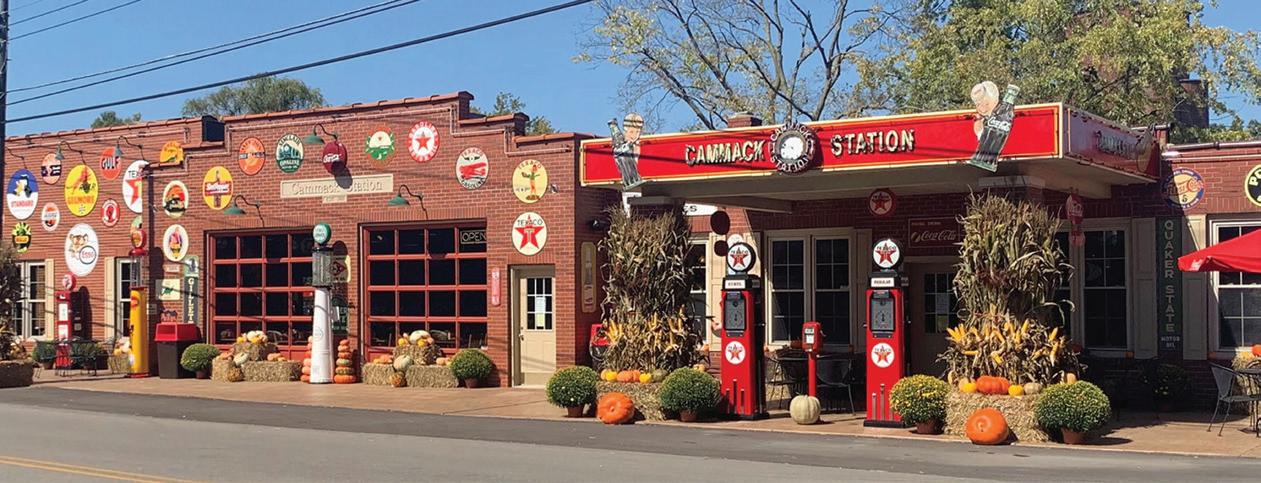
Described on the restaurant’s website as “a place where friends gather, people smile and the nostalgic presence is a welcome break from today’s chain restaurants,” Cammack Station celebrates “a simpler time,” and the inside of the building is filled with eye-catching memorabilia and antiques.
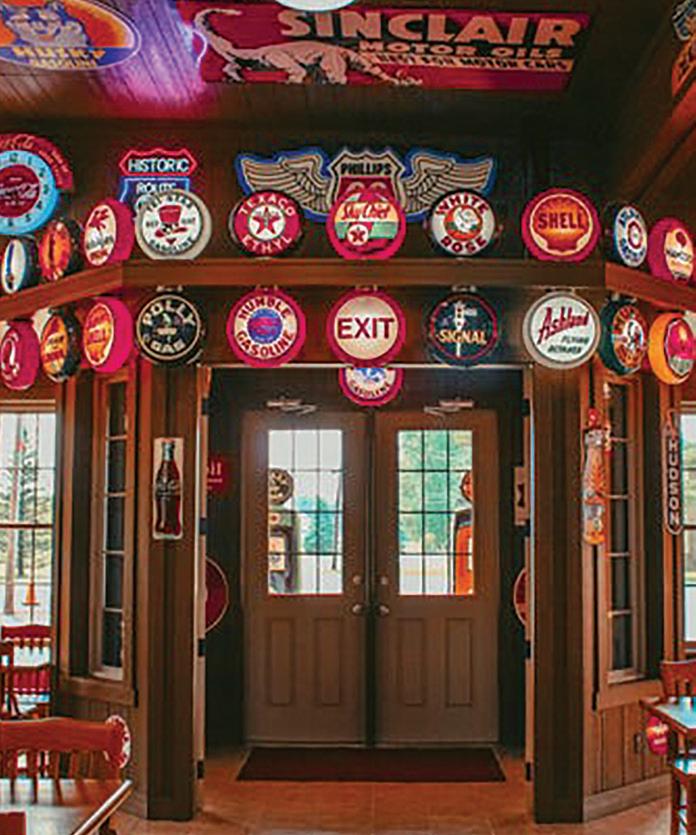
Owner Dick Howe purchased the structure and converted it into a restaurant in 2007. A second renovation occurred in 2009, along with an expansion to accommodate additional seating, kitchen space and storage. In 2015, Howe brought in Shane Shafer as general manager, and Howe said that “due to Shafer’s strong work ethic and dedication to the restaurant, it needed another addition in 2021.” Cammack Station now seats 165 people inside, and there are also plans for future additions.
When it comes time to order, classic comfort food such as a breaded tenderloin or burger will hit the spot, and side dishes including tater tots, loaded cheese fries and breaded mushrooms are the perfect complement. All of the restaurant’s food is made to order, using local beef, pork and vegetables — and zero frozen meats.

As for dessert, a scoop of ice cream is always a good idea; hand-dipped and made by Sundae’s Homemade Ice Cream in small batches, you’ll find a rotating selection of flavors that might include “Graham Cammack Station,” “Hoosier Buckeye” or “Bing Cherry Chip.” The eatery’s most popular dessert is strawberry shortcake, made with thick, homemade cake and freshly cut strawberries, topped with soft-serve ice cream and whipped cream. You can enjoy your meal inside while grooving to some oldies, or if the weather is nice, there is a brick patio outdoors.

“We hope once you visit, you’ll never forget your experience and you’ll be sure to ‘Cammack and see us,’” Howe said.
Cammack Station is currently operating under summer hours until Oct. 31 and is open Wednesday through Sunday from 11 a.m.-9 p.m. For the latest information, visit cammackstation.com
How can a rechargeable hearing aid that ts inside your ear and costs only $14 999 be every bit as good as one that sells for $2,400 or more?




The answer: Although tremendous strides have been made in Hearing Aid Technology, those cost reductions have not been passed on to you. Until now...

























The MDHearing™ NEO uses the same kind of technology incorporated into hearing aids that cost thousands more at a small fraction of the price. Satis ed MDHearing customers agree: High-quality, digital, FDA-registered rechargeable hearing aids don’t have to cost a fortune. NEO is a medicalgrade, digital, rechargeable hearing aid offering sophistication and high performance; and works right out of the box with no time consuming “adjustment” appointments. You can contact a licensed hearing specialist conveniently online or by phone — even after your purchase at no cost. No other company provides such extensive support. Now that you know...why pay more?

PLUS... It fits inside your ear.














I
realize what I
— Tina R., Atlanta
crunch Packs a
RITZ TOASTED CHIP TREAT

Donna Dettmer , Columbus, Indiana
1 bag RITZ Toasted Chips (original flavor)
2 cups shelled pecans
1 stick butter
½ cup sugar
½ cup light corn syrup
1 teaspoon vanilla extract
⅛ teaspoon almond extract
½ teaspoon baking powder
Preheat oven to 250 degrees Fahrenheit. Cover an 11-by-14-inch cookie sheet (with sides) with aluminum foil and spray foil with cooking oil spray. Pour the bag of chips on the foil and spread chips evenly. Sprinkle pecans on top. Over medium heat in a medium saucepan, add butter, sugar and corn syrup. Bring mixture to a boil and boil for 4½ minutes while stirring constantly with a metal spoon. Remove from heat; stir in vanilla extract, almond extract and baking powder. Gently pour the liquid over the chips and pecans, stirring with a silicone spatula (sprayed with cooking spray) to coat all sides of the crackers and nuts. Bake 1 hour, stirring every 15 minutes with the silicone spatula. Remove chip mixture from pan and cool on a new piece of oiled aluminum foil.
SINK YOUR TEETH INTO CRISPY, CRACKLY GOODNESS
CRUNCHY PEA SALAD
Doris Ann Kahlert , Berne, Indiana
1 (10-ounce) package
frozen peas, thawed
1 cup diced celery
1 cup cauliflower florets
¼ cup diced green onions
1 cup chopped cashews (optional)
½ cup sour cream
½ cup ranch-style salad dressing (can add more to taste)
½ cup crisply cooked and crumbled bacon
Combine peas, celery, cauliflower, green onions, cashews, sour cream and dressing in a salad bowl; mix well. Chill until ready to serve. Top each serving with crumbled bacon.

PUMPKIN CRUNCH DUMP CAKE

Glenda Ferguson , Paoli, Indiana
1 (15-ounce) can of pumpkin puree
1 (12-ounce) can of evaporated milk
1⅓ cups sugar
4 eggs, slightly whisked
1 teaspoon ground cardamom
½ teaspoon salt
1 box white cake mix
¾ cup shelled, chopped pistachios
½ cup roasted and salted pumpkin seeds
1 cup toasted coconut (shredded or flaked)
2 sticks (1 cup) butter, cut into 30 slices
Preheat oven to 350 degrees F. Combine pumpkin, milk, sugar, eggs, cardamom and salt. Transfer to a greased, 9-by-13-inch pan. Sprinkle the cake mix over the top. Sprinkle on the pistachios, pumpkin seeds and coconut, and then distribute the butter slices evenly over the top of the mixture. Bake for 40-45 minutes. Let cool before serving.
CHAIN LINKS in the
Repurposed railroad lines to form a transcontinental route of multiuse trails
BY RICHARD G. BIEVERDuffPatterson straddled his electric bicycle and examined the trail map at the head of the Cardinal Greenway in Richmond. He was deciding if he should go right onto the rail-trail or left to a path that followed the East Fork of the Whitewater River.
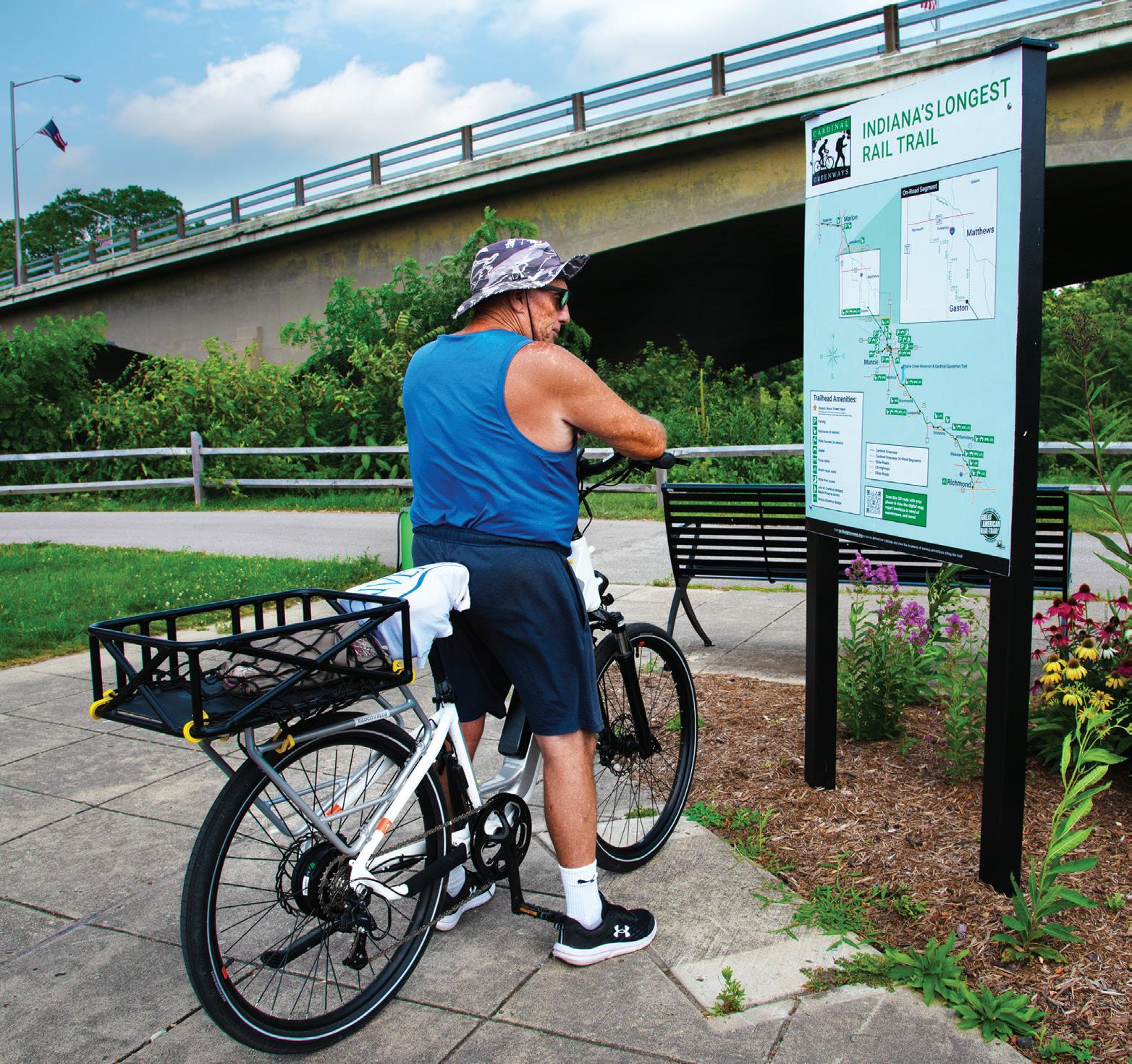
Until April, he’d been a lifelong resident of San Diego. Having picked Richmond as the place to retire, he was still greasing his bearings.
The move was to escape the dystopia he described back in California — its high cost of living, bureaucracies, taxes and overcrowding. The trails he rode in quiet solitude this summer morning would have been packed with pedestrians and bicyclists in San Diego, he said.
Patterson said he’d been an avid cyclist in his younger years. But now, at 67, he noted the pedal assistance of his e-bike allowed him to keep riding. Though new to Indiana, he quickly made himself at home. He had already traveled the Cardinal Greenway on its seamless run from Richmond to Muncie. He stayed the night at a hotel, then rode back the next day.
On this day, he plugged the stubbiest rump of a cigar back between his lips, hopped aboard his bike and took off down a hill and south along the river.
ON TRACK
The Cardinal Greenway is Indiana’s longest rail-to-trail. The continuous stretch from Richmond through Muncie to Gaston is 50.5 miles. A second section, from Gas City through Marion to Sweetser, adds another 10. The Cardinal is also Indiana’s oldest — celebrating its 30th anniversary this year — and most acclaimed trail.
“We see our trail system as an oasis for our thousands of users each year,” said Angie Pool, CEO of Cardinal Greenway, Inc. The private nonprofit owns and maintains the trail. “The trail provides an ideal space where you can go to recharge, and we know, from conversations with many, the trail can help stress melt away for a bit while you are out enjoying the peaceful, serene setting.”
Beyond Indiana, the Cardinal Greenway has been recognized by the national Rails-to-Trails Conservancy. In 2018, the Cardinal
Greenway was chosen by popular vote as a RTC Hall of Fame Trail. A year later, RTC identified the Cardinal Greenway, which crosses parts of five eastern counties, as Indiana’s first link in the Great American Rail-Trail.
The Great American is RTC’s ambitious 3,700-mile planned linkage of rails-to-trails that will connect Washington, D.C., to Washington state. Not only that, but RTC designated a “gateway trail” in each of the 12 states the Great American crosses that epitomizes what the concept of the trail should be like. For Indiana, that was the Cardinal.
“It still gives me goosebumps because we are as passionate as can be about Cardinal Greenway,” Pool said, “and we want the world to be the same. We thought, ‘we’re hitting the big time.’”
Eric Oberg, RTC’s regional director for the Midwest, noted in Outdoor Indiana magazine that the Cardinal has everything that makes a great trail: Its 60 miles are relatively flat and
accessible to most anyone to go out and enjoy. The small towns it passes through are well-spaced and provide places to rest and eat, with cultural amenities to visit.
A few decades ago, rail-to-trail conversions were controversial. Proposals were met with vocal resistance, mostly by landowners whose property the railroad corridors crossed, Pool noted. Now, she said, the Cardinal Greenway and others show what great assets they are.
“The Cardinal Greenway is listed time and time again as one of the best assets of each of our communities,” Pool said. “Businesses promote themselves by saying they’re ‘located beside the beautiful Cardinal Greenway.’ Realtors brag homes are ‘just 1 mile from the Cardinal Greenway.’ The Chamber of Commerce and Economic Development staffs use it to bring new businesses to town and to keep employees here.”
She continued, “We promote what the trail can do for all of our communities; form partnerships and collaborations to boost local pride and increase tourism and economic value to each.”
Pool, now in her 16th year as the Greenway’s CEO, also serves on the Indiana DNR trail advisory board and the Greenway Foundation of Indiana board. She’s also a Henry County REMC consumer — as is the Greenway itself.
RAILS TO TRAILS
After World War II, the railroads that had helped build the United States into a world industrial and economic power began a steady decline. As passenger trains gave way to automobiles and jet planes and railroads consolidated, railroads began abandoning unprofitable and redundant rights-of-way and corridors in large numbers. In the early 1980s, Congress passed legislation that encouraged the preservation of the rights-of-way by preserving the basic
infrastructure of abandoned corridors for possible future reuse as rail lines — and by creating rail trails. In 1986, the Rails-to-Trails Conservancy was founded in Washington, D.C., to preserve the rail corridors as public trails by a group of walking and biking enthusiasts, railroad history buffs, conservation and parks groups, and transportation activists. At that time, just a handful of rail-trails dotted the landscape. Today, there are nearly 25,000 miles of railtrails crisscrossing the countryside and another 8,000 miles of rail-trails ready to be built.
Today, RTC is the nation’s largest trails organization — with more than 1 million grassroots supporters.
What makes abandoned railroad corridors so attractive as trails is that their cut across the land has been there, in some cases, for more than a century and a half. Infrastructure like bridges and culverts are in place. And they’ve been graded to be relatively flat. Inclines are hardly noticeable, even around hilly areas like Bloomington, observed Ross Tepe, trails manager with the Indiana Department of Natural Resources Division of State Parks.
“Rail-trails serve as great bike routes because they often follow a route that’s away from the road right-ofway, so they’re quiet,” Tepe said. “They’re also consistently followed by a tree canopy because those trees grew around the railroad right-of-way as it was abandoned. Several model routes are entirely shaded — which can be really helpful on a hot day.”
Work on what became the Cardinal Greenway began not long after CSX railroad abandoned the line through Muncie in 1986. Business and civic leaders looked to turn it into a public trail not just for Muncie but across all five counties the line served. “I keep thinking back to the vision of our original founders: ‘Let’s create this path for people to enjoy,’” Pool said.
“So, now we feel we are vital to each
E-BIKES 101
Electric bicycles are becoming increasingly popular on trails.
Electric bikes, or e-bikes, are regular bicycles with an electric motor that can be engaged as needed. E-bikes are becoming especially popular with people who face challenging terrain or perhaps find regular cycling too physically challenging. Studies also show that e-biking can bring many of the same physical benefits as non-assisted pedaling. One downside is they are heavier than regular bicycles.
Features vary among the brands and models, but the industry has developed three standard classes of e-bikes:
CLASS 1 has a motor that provides assistance only when its rider is pedaling and is limited to motor-assisted speeds of 20 miles per hour. These e-bikes are capable of going faster than 20 mph, but only on human power beyond that point. (This is the most common e-bike available for rent or bike-sharing);
CLASS 2 also reaches motorassisted speeds up to 20 mph but includes a throttle-powered mode that does not require pedaling;
CLASS 3 offers pedal assistance up to a maximum of 28 miles per hour. Additionally, Class 3 e-bikes are required to be equipped with a speedometer. These can still be pedaled faster than their motor-assisted speeds, but only with human power. (Class 3 e-bikes can ALSO be categorized as Class 2 e-bikes if they feature a throttle that is limited to 20 miles per hour.)
Most trails welcome the use of Class 1 and Class 2.
community that we span. We are a free resource for people to go out and improve their quality of life, whether it be by walking, riding their bikes or running. We love that we’re a trail where one could also push a baby stroller.”
In 1993, the Cardinal Greenway incorporated as a 501(c)(3) reliant on volunteers. The new organization took its name from “The Cardinal,” the last passenger train that regularly traveled the line from Chicago to Cincinnati to D.C. Through grants, federal and state funding and fundraising efforts, the nonprofit purchased the right-ofway from Marion to Richmond from CSX. An 11-mile gap was created between Gaston and Gas City, however, because CSX sold that section to local landowners first. The first section of the trail was paved in 1998. The last segment between Richmond and Losantville was completed in 2012. The Wysor Street Depot in Muncie, which was included in the original purchase of the corridor and has been restored, now serves as Cardinal Greenways’ headquarters. The depot also provides a rest center, a small gift shop and a gathering point. At the end of July, the depot hosted 180
cyclists participating in a century ride (100 miles) along the north and south sections of the Greenway.
Now, Pool said the Cardinal Greenway is focusing on maintaining the aging asphalt of the paved trails and closing that 11-mile gap between Gaston and Gas City with a dedicated trail or with side paths along county roads.
GREAT AMERICAN RAIL-TRAIL
“Imagine pedaling across the entire country on a safe, seamless and scenic pathway — or walking a local trail that connects you to historic routes from coast to coast. … Consider the intimacy of taking in all the country has to offer from the most personal vantage point: the trail.”
That’s how the Rails-to-Trails Conservancy promotes the promise of its Great American Rail-Trail. In a nation that prizes private property so highly, that the potential for a public transcontinental trail of this magnitude could even be imagined is amazing, if not sublime and even transcendent. But remarkably, the route is already more than halfway complete.
The preferred route of the Great American has been mapped out by RTC and its partners. It’s more than 3,700 miles utilizing some 150 existing rail-trails, greenways and other multi-use paths through the 12 states, offering a route across the nation that is completely separated from vehicle traffic. Upon its completion at an unknown date, the Great American will serve more than 50 million people within 50 miles of its route, as well as the millions from across the country and the world who will explore America’s diverse places via the trail.
The trail starts near the U.S. Capitol in Washington, D.C., at RTC’s headquarters, and then runs through Maryland, Pennsylvania, West Virginia, Ohio, Indiana, Illinois, Iowa, Nebraska, Wyoming, Montana, Idaho and Washington, ending on the Pacific coastline.
Though the route still has gaps totaling some 1,700 miles to be developed, RTC said in its May 2023 Route Assessment Report that the route stands at 54% complete. Indiana has 55% of its 215 miles complete, while Ohio has 70% of 335 miles and Illinois has 87% of 193 miles.
Through Indiana, a dozen trails will host the Great American Rail-Trail on a diagonal trajectory from Richmond to the south side of the Chicago metropolitan area. They include: Cardinal Greenway; Sweetser Switch; Converse Junction; Nickel Plate; Monterey Erie; North Judson Erie; Veterans Memorial; Erie Lackawanna Trail; and ending with the Pennsy Greenway’s connection to Illinois.
CLOSING THE GAPS
Closing the 96 miles of gaps in Indiana’s portion of the Great American has been a focus of Gov. Eric Holcomb’s administration and the DNR’s Next Level Trails program.
“Our relationship with the Great American Rail-Trail and Rails-to-

Trails really comes out with our grant programs, and how we award projects,” said Tepe with the DNR, which administers the grants.
Since 2018, Indiana has dedicated $180 million to the Next Level Trails program. The program is part of Holcomb’s Next Level infrastructure plan that was funded by the $1 billion renegotiated toll road lease.

“We have awarded smaller grants from pre-exisitng grant programs,” noted Tepe, “but NLT is the largest by far.”
Next Level Trails allocated $90 million in its first three years, the largest infusion of trail funding in Indiana history. “A big part of that grant program is connectivity, both local connectivity and regional connectivity,” explained Tepe. “While we fund trails all across the state, we do have a scoring metric that shows preference toward projects along the [Great American] route.”
Last year, an additional $60 million in Next Level Trails grants came from President Joe Biden’s American Rescue Plan from 2021’s COVID-19 stimulus bill. The latest round of NLT grants, an additional $30 million, came from the budget passed by the Indiana General Assembly in May.
For his leadership in accelerating trail development across the state, Rails-to-Trails Conservancy named Holcomb the Doppelt Family Rail-Trail Champion in 2021. Holcomb, the 40th

honoree, was the first acting governor to be recognized as a Rail-Trail Champion.
“Trails, especially the Great American Rail-Trail, can help bring in tourism and economic development,” said Tepe. “But it’s also beneficial to communities along the trail.”
He noted benefits include simply being able to ride a bike to work more easily or to connect to nature. “Making connections, both between communities, from one city to the next, and within those cities, connecting residential areas to local amenities such as parks, stores, job locations and schools, means a lot of quality-of-life improvements.”
In addition to support for trails in the governor’s office, the bipartisan Indiana Trails Caucus was formed in 2020. The caucus includes 33 state legislators comprised of Republicans and Democrats from the House and Senate. Members are committed to creating a statewide trails network that provides significant health, economic and other quality-of-life benefits for all Hoosiers.
ALL ABOARD

“Good morning, America, how are ya?” begins the chorus of the classic train song about riding “magic carpets made of steel,” made famous by Arlo Guthrie a half-century ago. “Said don’t you know me? I’m your native son …”
For almost anyone living today, morning in America is no longer about riding the rails. If you’re out on a rail corridor, you’re probably traversing the trails: the rails-to-trails. The longabandoned magic carpets of steel have been replaced by smooth, gently rolling, narrow ribbons of asphalt.

Whether a “Golden Spike” — used to connect the last span of transcontinental railroad track in 1869 — is somehow employed if and when the last segment of the Great American Rail-Trail is opened down the line, one thing is sure: these are golden, heady days for trails. “People see the impact they can bring to the communities and even to themselves,” said Pool. “They get out there and walk, ride their bikes, or just stroll on trail systems that are close to them. People have realized what a great resource trails are.”
During the pandemic, trail use picked up by 300 to 400%, and it’s remained consistent, she said. “With all that great momentum for trails and positive thoughts about trails, and people wanting them and wanting connections,” she added, tossing in one last nod to the railroad lexicon that infuses our language, “I just think people are going to really jump on board.”
Richard G. Biever is senior editor of Indiana Connection. EXISTING TRAILS TRAIL GAPSHow to Be Cut Off From Civilization
When






Youare a man of the wilderness. The only plan you have is to walk up that mountain until you feel like stopping. You tell your friends that it’s nothing personal, but this weekend belongs to you. You’ve come prepared with your River Canyon Bowie Knife sheathed at your side. This hand-forged, unique knife comes shaving sharp with a perfectly fitted hand-tooled sheath. The broad stainless steel blade shines in harmony with the stunning striped horn, wood and bone handle. When you feel the heft of the knife in your hand, you know that you’re ready for whatever nature throws at you. This knife boasts a full tang blade, meaning the blade doesn’t stop at the handle, it runs the full length of the knife. According to Gear Patrol, a full tang blade is key, saying “A full tang lends structural strength to the knife, allowing for better leverage ...think one long steel beam versus two.”
With our limited edition River Canyon Bowie Knife you’re getting the best in 21st-century construction with a classic look inspired by legendary American pioneers. What you won’t get is the trumped up price tag. We know a thing or two about the hunt–– like how to seek out and capture an outstanding, collector’s-quality knife that won’t cut into your bank account. This quintessential knife can be yours to use out in the field or to display as the art piece it truly is. But don’t wait. A knife of this caliber typically cost hundreds. Priced at an amazing $49, we can’t guarantee this knife will stick around for long. So call today! Your satisfaction is 100% guaranteed. Feel the knife in your hands, wear it on your hip, inspect the craftsmanship. If you don’t feel like we cut you a fair deal, send it back within 30 days for a complete refund of the sale price. But we believe that once you wrap your fingers around the River Canyon’s handle, you’ll be ready to carve your own niche into the wild frontier.

BONUS! Call today and you’ll also receive this genuine leather sheath! What customers are saying about Stauer knives...




“First off, the shipping was fast and the quality is beyond what I paid for the knife. Overall I am a satisfied customer!”
— D., Houston, Texas

River Canyon Bowie Knife $79*
Offer Code Price Only $49 + S&P Save $30






1-800-333-2045
Your Insider Offer Code: RCK478-01 You must use the insider offer code to get our special price.




it’s you against nature, there’s only one tool you need: the stainless steel River Canyon Bowie Knife—now ONLY $49!
































A LINEMAN at heart
Jim Binkley honors the trade even after retirement
Clark County REMC’s Wyatt Binkley first climbed at a lineman rodeo when he was 12 years old. Last year, he was on the team that finished first place overall at the inaugural Indiana Electric Cooperative Lineman Rodeo. He received a unique, handcrafted trophy for his efforts — one made by his father.
Jim Binkley, who worked in the industry for more than 40 years and has two sons now working as linemen, has contributed to linework in many different capacities. He has been inducted into the International Lineman Hall of Fame, and beyond his professional duties, has created trophies for lineman rodeos, retirement gifts and more.
He traces his passion for these types of projects back decades.
In 2003, the superintendent of Scottsburg Municipal Electric, Jim Satterly, was retiring. Binkley was asked to fill the position.
“I immediately had a problem,” Binkley said. “What should I give Mr. Satterly for his retirement? I was splitting wood when the solution appeared before me.”
Satterly had a tree contractor remove an old oak tree that was endangering a primary electrical line. Binkley took some of the wood home and was splitting it when he discovered a pair of “house knob insulators” embedded within the wood.
“I counted 40 tree rings back from the bark to the base of the insulator, and I knew then I had something to build from,” he said. “I counted the rest of the rings to establish the
age of the tree and used it to create a story highlighting Mr. Satterly's career at Scottsburg.”
Five years after crafting the wooden sculpture for Satterly, Binkley undertook a new project: building insulator keepsakes for the eighth annual American Public Power Association (APPA) Lineman Rodeo. He created 75.
“When I built the keepsake, I wanted to represent the year using pieces of wire the size of each number of the year and bend them in arches,” he said. Binkley received a standing ovation for his efforts at the evening’s banquet, and he said that he “considered it at the time the pinnacle of my lineman career, being honored by my peers.”
Binkley has tried to be intentional with his work — both as a lineman and a creator.
When the Indiana Municipal Electric Association later decided to create a state rodeo modeled after the APPA event, Binkley was asked to create trophies. He accepted, also coming up with the idea to have a traveling award to emphasize what he believes to be the most important event: the hurt man rescue.
Last year, Binkley was asked if he was interested in making the trophies for the first Indiana Electric Cooperative Lineman Rodeo. He agreed, and the awards he created were built “around a saddleback insulator pin and used a weathered piece of cross-arm. It seemed like a natural fit for a rodeo trophy,” he explained.
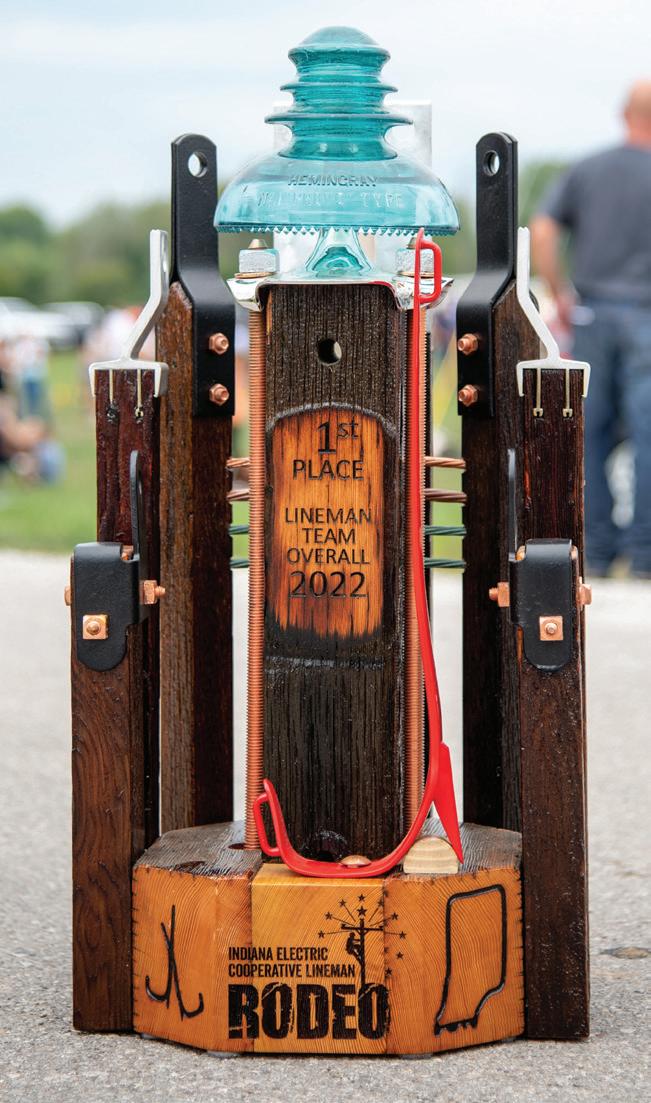

Binkley made the awards for the Indiana Electric Cooperative Lineman Rodeo again this year. Regardless of who wins, there is no doubt that Binkley’s handiwork is treasured by the linemen who are awarded his trophies — and Binkley is pleased to be able to pay tribute to their efforts. “I especially like honoring those stand-out linemen that are dedicated to our trade.”
-Jenna WilliamsHow a Safe Step Walk-In Tub can change your life
Remember when…
Think about the things you loved to do that are dif cult today — going for a walk or just sitting comfortably while reading a book. And remember the last time you got a great night’s sleep?
As we get older, health issues or even everyday aches, pains and stress can prevent us from enjoying life. So what’s keeping you from having a better quality of life?
Check all the conditions that apply to you.
Personal
Arthritis Dry Skin

Insomnia Anxiety
Diabetes Mobility Issues

Then read on to learn how a Safe Step Walk-In Tub can help. Feel better, sleep better, live better
A Safe Step Walk-In Tub lets you indulge in a warm, relaxing bath that can help relieve life’s aches, pains and worries.
A Safe Step Tub can help increase mobility, boost energy and improve sleep.

It’s got everything you should look for in a walk-in tub:
• Heated Seat – Providing soothing warmth from start to nish.
• MicroSoothe ® Air Therapy System – helps oxygenate and soften skin while offering therapeutic bene ts.

• Pain-relieving therapy – Hydro massage jets target sore muscles and joints.
• Safety features – Low step-in, grab bars and more can help you bathe safely and maintain your independence.
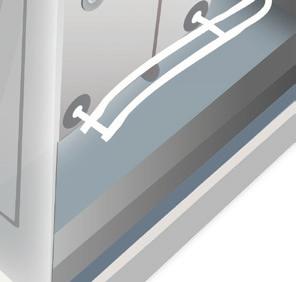




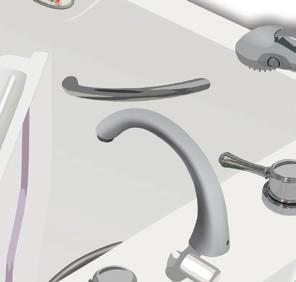

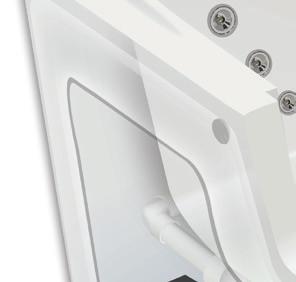



Call now toll free 1-800-993-8501 for more information and for our Senior Discounts. Financing available with approved credit. Personal Hygiene Therapy System and Bidet Hydro-Jet Water Therapy –10 Built-In Variable-Speed Massaging Water Jets Wider Door, The Industry’s Leading Low Step-In Foot Massaging Jets Anti-Slip Tub Floor Complete Lifetime Warranty on the Tub Heated Seat and Back New Rapid Fill Faucet MicroSoothe® Air Therapy System Electronic Keypad 16 Air Bubble Jets www.BuySafeStep.com Scan me Safe Step includes more standard therapeutic and safety features than any other tub on the market, plus the best warranty in the industry: FREE SHOWER PACKAGE PLUS $1500 OFF FOR A LIMITED TIME ONLY Call Toll-Free 1-800-993-8501 With purchase of a new Safe Step Walk-In Tub. Not applicable with any previous walk-in tub purchase. Offer available while supplies last. No cash value. Must present offer at time of purchase. CSLB 1082165 NSCB 0082999 0083445 13VH11096000


Hoosier Energy news
Engaging with our future leaders SUMMER UPDATE:
Hoosier Energy spent summer vacation sponsoring youth events.
Whether it was on the steps of our nation’s capital or on a zip line tower, Hoosier Energy helped local youth take advantage of the opportunity to spend a portion of the summer engaging in fun and educational activities.

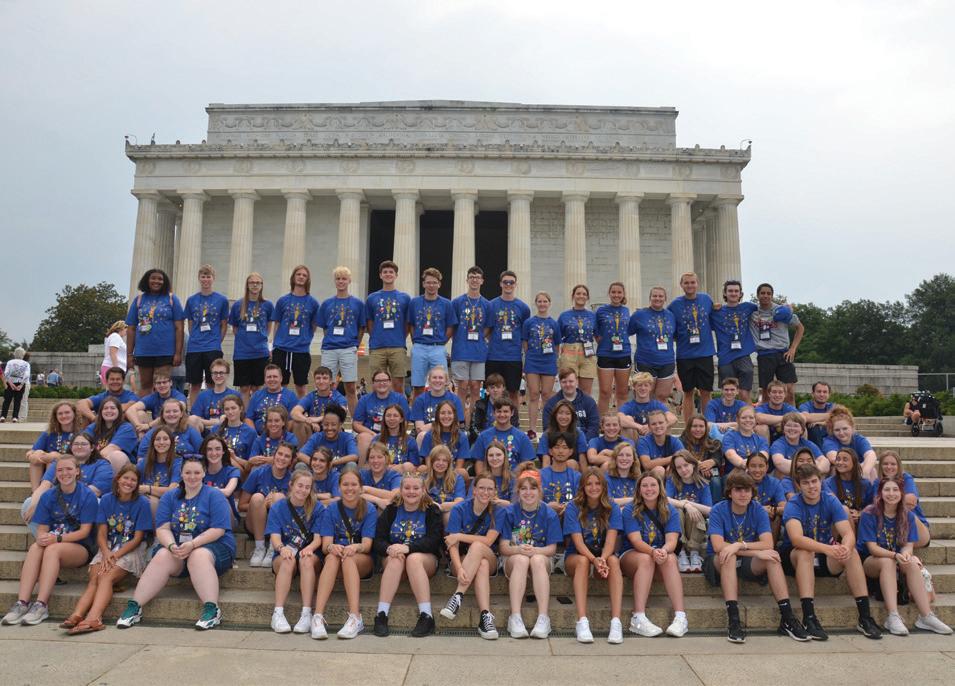
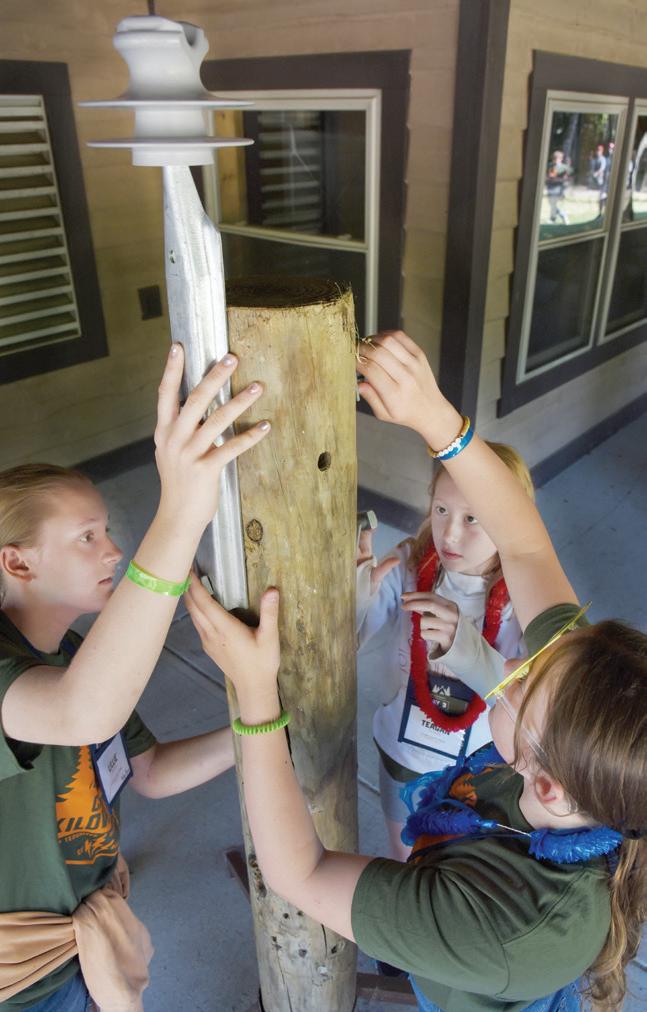
At Camp Kilowatt in Brookston, Indiana, Hoosier Energy sponsored the “circuit boards and bikes station,” one of several rotating activities for the 101 participating campers — 38 of which came from Hoosier Energy member cooperatives — to enjoy each evening. The bikes were provided by Nine13sports, a nonprofit that travels to schools and other studentcentric locales such as Camp Kilowatt to provide what the organization describes as “an interactive indoor bicycling simulator.”
Eight bikes are set up on stationary training stands, and the bikes interface with a computer software program that simulates cycling outdoors, including going up and down hills. Each rider can see information such as speed and distance displayed on a largescreen TV monitor. That display also includes how much energy the rider created.
There were plenty of other activities on the agenda for the rising seventh graders at Camp Kilowatt, including bucket truck rides, rock climbing, archery, riflery, swimming, alternative energy education, a live line safety demonstration, horseback riding,

canoeing and a zip line. This was all done under the direction of Crystal Greathouse of Decatur County REMC, a Hoosier Energy member.
Meanwhile, a slightly older crowd of rising high school seniors went on the Indiana Youth Tour. Hoosier Energy was among the sponsors of the 75 students representing 29 electric cooperatives in the state of Indiana. The tour included stops at the Flight 93 National Memorial and Gettysburg before the students arrived in Washington, D.C., where they visited the Library of Congress, George Washington’s Mount Vernon home, the National Museum of the Marine Corps, the Pentagon Memorial, the Smithsonian Institution and the White House, as well as taking in a Major League Baseball game between the Washington Nationals and the Miami Marlins.
INSURANCE GIVES PET PARENTS PEACE OF MIND
Shockingly steep vet bills can be a thing of the past
September is National Pet Insurance Month and although pet insurance may seem like a luxury, with the right policy and coverage, it may come to the rescue in the event of serious illness, disease or accident.
Over 69% of Hoosier households share their home with a pet, with twice-yearly vet trips running over $400 for dogs and almost $200 for cats each time, according to the American Veterinary Medicine Association. When visits go from routine to emergency, final bills can skyrocket into the thousands, but thankfully, pet insurance can help reduce out-of-pocket costs.
Pet insurance functions similarly to traditional medical insurance, requiring a premium for coverage. Premiums typically run around $15 for cats and $23 for dogs each month, according to MarketWatch. It’s a good idea to research a few different plans to determine what type of coverage you need. Pay special attention to when coverage
kicks in, as there can be a waiting period. All plans should outline the coverage limits, deductible and reimbursement amount, and many offer multi-pet discounts and unique perks. Here are some options:

American Kennel Club (AKC)
Your dog doesn’t have to qualify for membership in the AKC to get coverage, and cats are also welcome. AKC insurance is notable because it is one of the only options that covers preexisting conditions after 365 days of ongoing coverage.
CarePlus
Chewy’s CarePlus insurance partners with well-known insurers Truepanion and Lemonade. CarePlus keeps it simple by paying your veterinarian directly and covers 100% (minus deductibles) of many pet prescriptions, diet food and supplements. There’s no payout limit, meaning even the most accident-prone pet can enjoy lifetime coverage.
Pet insurance provider Figo offers a range of options with the flexibility to opt for wellness or expanded incident coverage. You can submit claims via Figo’s app for reimbursement in less than three days, on average. Bonus: Costco members may be eligible to receive a 15% discount on new policies.
Your regular insurance provider
Nationally recognized insurers such as Nationwide, Allstate, Progressive and State Farm have also entered the pet insurance business.
Request a free quote from a pet insurance provider to determine the plan that fits you and your pet’s needs best. When you do, you can rest assured that your pet insurance will be there to share the cost of keeping your furry friend healthy for years to come.
–Natalie DerricksonEnergysaving tips that will lower electricity costs
Everyone likes efficiency, especially in the home. Try these easy and budgetfriendly DIY updates to help lower your home’s energy output — and reduce your electric bills.
It’s in the air
If replacing old leaky windows is outside of your budget, try a window insulating kit, or seal up small leaks with expanding insulating foam. Adding storm windows is a nice alternative to full window replacements. Nearly half of U.S. homes don’t have enough insulation, so consider replacing old insulation or adding more to what you have.
A digital programmable thermostat can save up to 10% on your heating and cooling bills, so it quickly pays for itself. A Wi-Fi-enabled version gives remote access to seven-day programming and filter alerts. And keep up with furnace filter replacements — most brands suggest it every one to three months, as dirty filters can diminish your furnace’s efficiency.
The EPA estimates roughly 20% of the air in your ductwork escapes through leaks. Try duct sealant to repair leaks in exposed ducts. Seal air leaks around floors, walls, ceilings, windows, doors and fireplaces.
Switch bulbs
Efficient, longer-use LED bulbs stay cool and offer more options when paired with smart technology. Use a smart app or 7-day timer to make sure lights go out when not in use — or install motion sensor light switches

that do it for you. Switch low-voltage outdoor lighting to solar versions. You can also try strategically placing mirrors nearby to reflect light where you need it most.
Swap flooring
Cork flooring (or cork backing) is popular for its eco-friendly, sustainable sourcing and its heat-retaining properties. Engineered wood with a foam base is another energy-efficient option. Thick, strong natural stone actually forms a barrier that helps you stay comfy through any season.
Soak up savings
Switch out gallon-guzzling older toilets for ones with a lower GPF (gallons per flush) rating. Scrub or soak your showerhead to remove mineral deposits and buildup, because improved flow could shorten rinse time. In addition, adding aerators to kitchen and bath faucets saves an average family about 700 gallons of water per year.
Water heating is a major home energy expense, so get your water heater up to snuff. You can drain it yearly to extend its life span, or consider opting for a high-efficiency model or an ondemand tankless version. If the water heater is situated in a cold basement or garage, lower its thermostat and add a form-fitting insulating jacket.
The recently enacted Inflation Reduction Act offers homeowners energy-efficient home improvement tax credits for going green. For example, installing an electric or natural gas heat pump water heater could result in a $2,000 credit. The high-efficiency electric home rebate program offers sizable credits for heat pumps, stoves, electrical wiring and insulation.
Visit your local Do it Best store or doitbest.com for thousands of the best home improvement products.
by Brandon Juergens Brandon Juergens is the manager of Juergens Do it Center in Huntington. He’s a member-owner of Do it Best, a Fort Wayne-based cooperative of thousands of hardware stores, home centers and lumberyards throughout the US and around the world.
Protect your block around the clock.
SUBMIT YOUR FREE ONLINE TICKET TWO FULL WORKING DAYS BEFORE YOU DIG. YA DIG? Follow

